I am upset with God
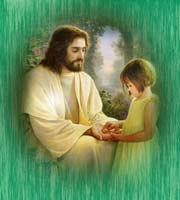 Fr. Bishoy Kamel1 visited a sick person who was complaining from pain in his back. Abouna Pishoy started to give him words of solace, but the man answered, "I'm not asking God to take away my illness. I only ask Him to give me the strength to stand up for prayer and take from me the severe headache that hinders me from praying 'Our Father.' As long as the headache was there, I couldn't concentrate on one word."
Fr. Bishoy Kamel1 visited a sick person who was complaining from pain in his back. Abouna Pishoy started to give him words of solace, but the man answered, "I'm not asking God to take away my illness. I only ask Him to give me the strength to stand up for prayer and take from me the severe headache that hinders me from praying 'Our Father.' As long as the headache was there, I couldn't concentrate on one word."
Abouna Pishoy replied, "Don't be upset if you are not able to attend church or stand up for prayer, or even say 'Our Father,' because you participate in Jesus' suffering. Give thanks for this participation. For Jesus also suffered back pain under the heavy burden of the cross."
Some days later, when this sick man came to



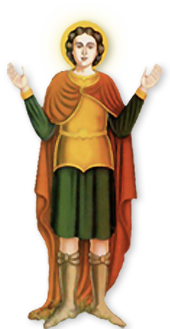





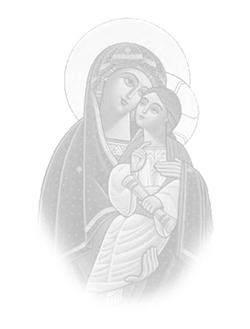



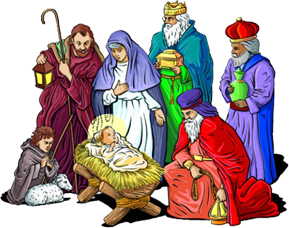
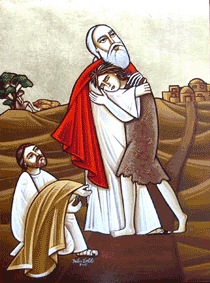 Imagine you are in a big garden, one with flowers of all beautiful bright colors imaginable, with bright blue skies and clear blue waters flowing smoothly like silk; the sun is shining a gentle warmth you’ve never felt before, and the grass is the perfect shade of green. Imagine being carefree, no responsibilities of the world to worry about, just as you were as a child. Imagine having all this and remember God’s promise to us: that He will give us “what no eye has seen nor ear heard”: a true Paradise indeed, one so good that we cannot even imagine it. Such is the promise that we are hoping and waiting for.
Imagine you are in a big garden, one with flowers of all beautiful bright colors imaginable, with bright blue skies and clear blue waters flowing smoothly like silk; the sun is shining a gentle warmth you’ve never felt before, and the grass is the perfect shade of green. Imagine being carefree, no responsibilities of the world to worry about, just as you were as a child. Imagine having all this and remember God’s promise to us: that He will give us “what no eye has seen nor ear heard”: a true Paradise indeed, one so good that we cannot even imagine it. Such is the promise that we are hoping and waiting for.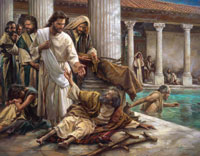
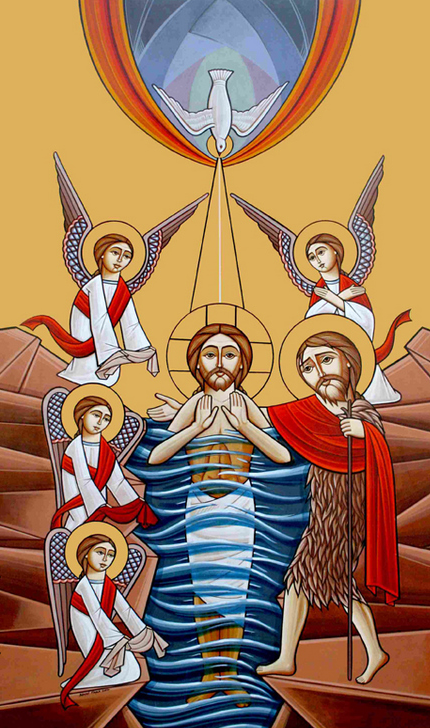 The word “Epiphany” comes from the Greek word ‘epiphaneia’, meaning ‘manifestation’ [1]. This refers to the event in which the Holy Trinity as a whole had been revealed to Mankind. Another, more direct term often used in place of “Epiphany” is the word “Theophany” which means ‘the manifestation of God to humankind’ [3]. Not to be mistaken for the Baptism of Our Lord Jesus Christ, the Epiphany was a result of His baptism in the Jordan River by John the Baptist. This is clearly explained in the Gospel of Luke: “When all the people were baptized, it came to pass that Jesus also was baptized; and while He prayed, the heaven was opened. And the
The word “Epiphany” comes from the Greek word ‘epiphaneia’, meaning ‘manifestation’ [1]. This refers to the event in which the Holy Trinity as a whole had been revealed to Mankind. Another, more direct term often used in place of “Epiphany” is the word “Theophany” which means ‘the manifestation of God to humankind’ [3]. Not to be mistaken for the Baptism of Our Lord Jesus Christ, the Epiphany was a result of His baptism in the Jordan River by John the Baptist. This is clearly explained in the Gospel of Luke: “When all the people were baptized, it came to pass that Jesus also was baptized; and while He prayed, the heaven was opened. And the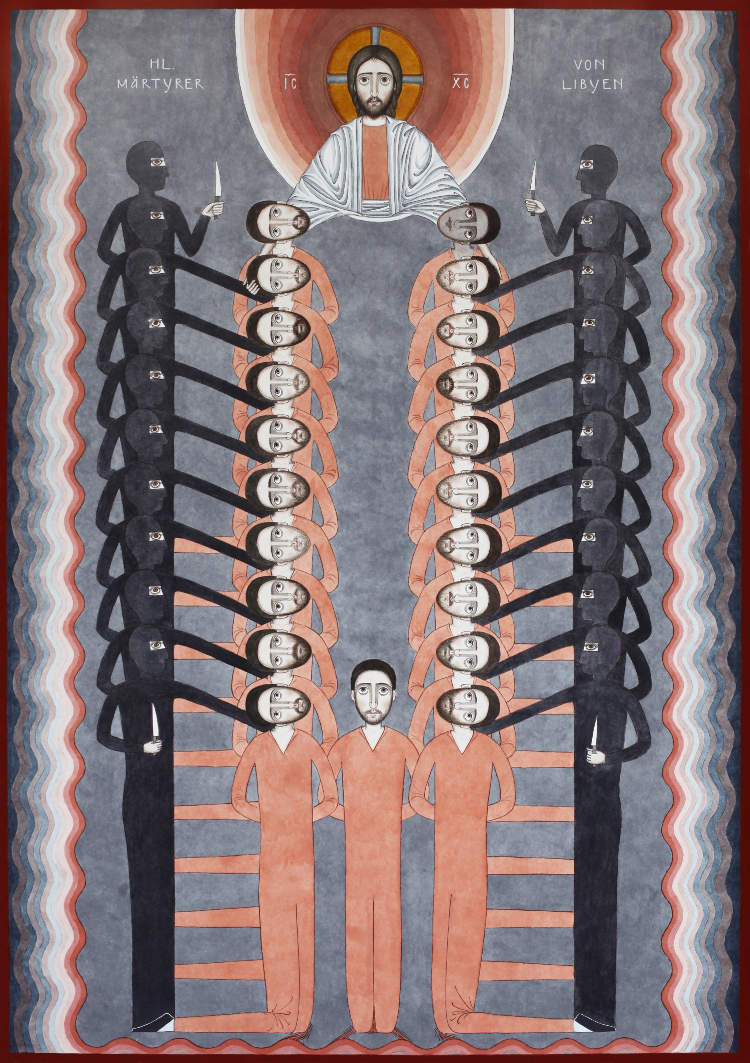

 Subscribe to RSS Feed
Subscribe to RSS Feed